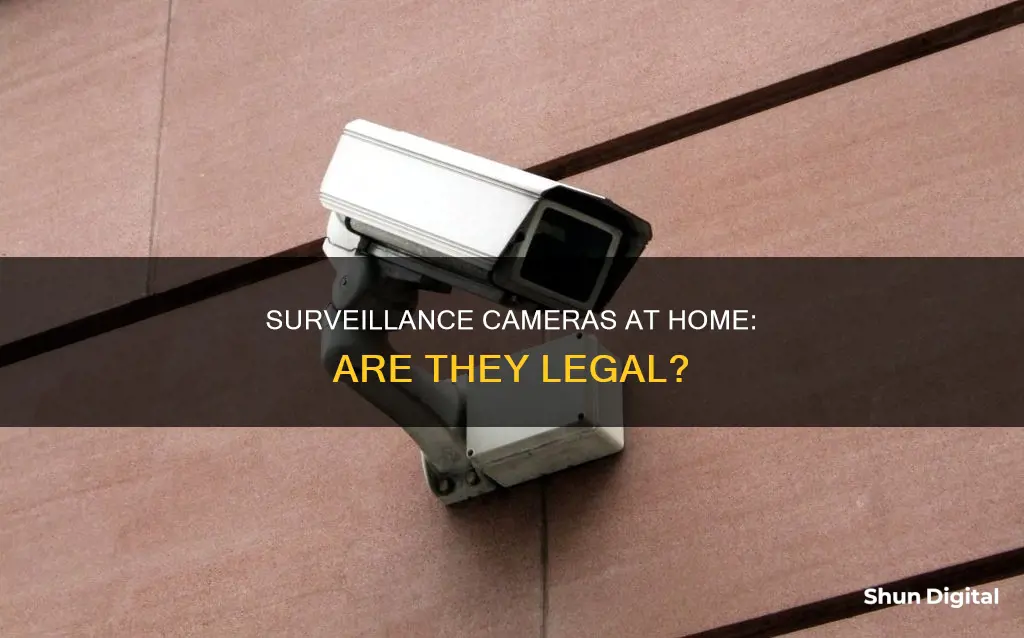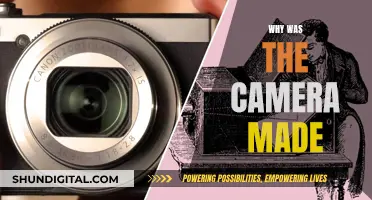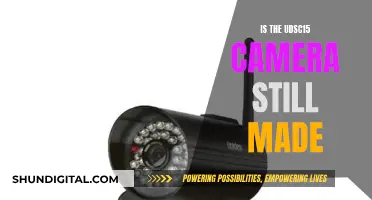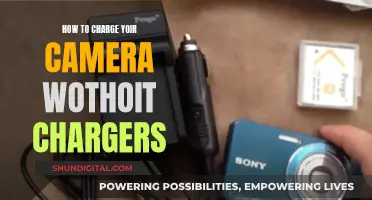
The use of home surveillance cameras is a topic that raises questions about privacy and legality. While it is generally acceptable to record video in public spaces without violating privacy laws, the placement of cameras in private areas such as bathrooms, bedrooms, and other intimate spaces is legally and ethically questionable. The laws governing surveillance cameras vary across different states, with some requiring consent for any form of hidden camera surveillance, while others permit it in non-private locations. It is worth noting that audio recording laws differ from video recording laws, and federal laws prohibit recording audio with malicious intent, such as blackmail. When installing home surveillance cameras, it is essential to understand the legal and ethical implications, especially when monitoring individuals who may be unaware of the cameras' presence.
| Characteristics | Values |
|---|---|
| Legality of Surveillance Cameras | No federal laws exist regarding surveillance cameras, so each state has its own guidelines. |
| Reasonable Expectation of Privacy | In most states, it is illegal to record in areas where there is a reasonable expectation of privacy, such as bathrooms, bedrooms, and changing rooms. |
| Consent | In some states, consent is required for any form of recording, while in others, consent is only needed for audio recording. |
| Public vs. Private Spaces | Surveillance in public spaces is generally allowed, but private spaces require consent or prior knowledge. |
| Hidden Cameras | The use of hidden cameras is generally legal, but it is illegal to use them for malicious purposes, such as blackmail. |
| Audio Recording | Audio recording laws vary by state, with some requiring all parties' consent and others allowing recording if one party is aware. |
| State-Specific Laws | Some states, like New Hampshire, require consent for any hidden camera surveillance, while others, like Tennessee, only require consent for hidden cameras in private spaces. |
What You'll Learn

Consent is not needed to videotape people in your home
In general, you can record video in public spaces as long as there is no reasonable expectation of privacy. Places that are assumed to be private include bathrooms, changing rooms, hotel rooms, and bedrooms. As long as you don't violate these reasonable expectations, you can conduct security and surveillance measures using video recording cameras at any home or business, even in public spaces.
It is important to note that audio recording laws are not the same as video recording laws. Audio recording laws vary from state to state, and specific jurisdictions may have different rules regarding the use of audio recordings. It is recommended to familiarize yourself with local, state, county, and federal laws before installing any security cameras.
Generally, you can use hidden surveillance cameras, such as "nanny cams," to record video without a person's consent. However, you should not place hidden cameras where someone would have a reasonable expectation of privacy. For example, you can install exterior hidden cameras that are mounted within a decoy item, but avoid pointing them at your neighbor's house, as this may violate their privacy expectations.
While you can legally record individuals in public spaces without their consent, it is always a good idea to mount cameras where they are clearly visible. This not only protects you from legal issues but also may deter crimes from occurring in the first place. Remember that each state may have its own laws regarding video surveillance, so be sure to check the specific regulations in your area.
Unleash Photography with Camera Raw CC
You may want to see also

Hidden cameras are generally legal, but not in private spaces
The use of hidden cameras is a contentious issue, and while they are generally legal, there are specific circumstances in which their use is prohibited. The key consideration is the concept of "reasonable expectation of privacy". This principle dictates that hidden cameras cannot be placed in areas where individuals would reasonably expect a certain level of privacy, such as bathrooms, bedrooms, or changing rooms. This expectation of privacy applies not only to public spaces but also within private residences.
In the context of residential properties, hidden cameras are generally permitted in common areas, such as living rooms, as guests or hired help would not expect a high level of privacy in these spaces. "Nanny cams", for example, have been popular among parents wishing to monitor their homes while away, and these are typically legal as long as they are not placed in private areas.
However, it is important to note that the laws regarding hidden cameras vary across different states and jurisdictions. While some states allow hidden cameras in non-private locations, others require consent for any form of hidden camera surveillance. For example, New Hampshire, Maine, Kansas, South Dakota, and Delaware mandate consent for all hidden camera surveillance, adhering to the "reasonable expectation of privacy" principle.
Additionally, it is worth mentioning that the interpretation of privacy laws differs between audio and video recordings. The laws governing audio recordings are generally more stringent, with some states requiring the consent of all parties involved in the conversation.
In summary, while hidden cameras are generally legal, they are not permitted in private spaces where individuals have a reasonable expectation of privacy. The specific laws may vary depending on your location, so it is essential to research the regulations in your state before installing any hidden cameras.
Overcoming Low Battery: Tips for Photographers
You may want to see also

Check local laws before installing cameras
Before installing home surveillance cameras, it is imperative to check local laws to ensure compliance and avoid legal repercussions. While there is no specific federal law governing the use of security cameras, there are national consent and privacy laws that apply to video surveillance, and regulations differ across states, counties, and municipalities.
Consent Laws
Consent laws govern the recording of conversations, both in-person and over the phone. At the federal level, the "one-party consent" law allows recording if at least one person involved consents. However, some states have stricter "all-party consent" laws, requiring the consent of all participants in a conversation. These states include California, Delaware, Florida, Illinois, and Maryland, among others.
Expectation of Privacy Laws
Privacy laws dictate that individuals cannot be recorded in places typically considered private, such as bathrooms, bedrooms, and changing rooms. While it is generally legal to record video in public spaces, it is crucial to respect the reasonable expectation of privacy for oneself and others.
Surveillance Camera Placement Laws
The placement of surveillance cameras is also subject to legal restrictions. While outdoor cameras can be positioned to cover one's property, they should not be directed at a neighbour's house or windows, as this violates privacy expectations. Camera angles should be carefully considered to avoid capturing unintended footage of adjacent properties.
Audio Recording Laws
Audio recording laws differ from video regulations and are generally stricter. Federal wiretapping laws, such as the Federal Wiretap Act, prohibit the recording of oral communications without the consent of all parties. This applies to security cameras with audio functions, and proper signage must be displayed to notify those being recorded.
State-Specific Laws
Some states have unique laws regarding the use of surveillance cameras. For example, Georgia permits cameras in both private and public settings as long as they are visible, while Florida, Alabama, and Minnesota allow hidden cameras in non-private locations.
In summary, checking local laws is essential before installing home surveillance cameras to ensure compliance with consent laws, privacy laws, camera placement regulations, and audio recording restrictions.
Who Created the First Commercial Camera?
You may want to see also

Consult a lawyer to understand your rights
While it is generally legal to install a residential security camera and record video, there are a number of nuances to consider. The best course of action is to consult a lawyer to understand your rights and the laws specific to your jurisdiction.
In the US, citizens are guaranteed a reasonable expectation of privacy, which extends to video recording. This means that you cannot record people in private places, such as bathrooms, hotel rooms, locker rooms, bedrooms, and changing rooms. If you are considering installing a security camera, it is important to ensure that it does not violate anyone's privacy.
Additionally, consent laws come into play when it comes to video surveillance. While it is generally legal to record a conversation if you are a part of it, some states have stricter laws, such as California, which requires everyone involved to consent to being recorded.
The laws surrounding video surveillance vary by state, and not every state has specific security camera laws. Therefore, it is crucial to understand the laws at the state, county, and local levels. For example, in Georgia, recording someone in public or private is not illegal as long as the cameras are not hidden, while Alabama allows hidden cameras in non-private settings.
It is also important to note the distinction between audio and video recording laws. Audio recording laws are more stringent, with federal laws requiring at least one person's consent for the recording to be legal.
To ensure that you are complying with the law and respecting others' privacy, consulting a lawyer is the best course of action. They can provide specific advice based on your location and help you understand your rights and obligations when it comes to home surveillance cameras.
Understanding Camera Raw: Destructive or Not?
You may want to see also

Surveillance laws vary by state
In most states, video surveillance in private places is permitted if the person being filmed consents. This consent is often given by entering a place with signs posted that state surveillance is taking place. However, there are some states that require consent from all parties being recorded, such as New York, Rhode Island, and California. These states do not allow cameras in places where individuals have a reasonable expectation of complete privacy, such as bathrooms, changing rooms, and bedrooms.
In Delaware and Connecticut, businesses must notify employees and customers if there are video cameras on the property that may violate expectations of privacy. In contrast, Florida, Alabama, and Minnesota allow hidden video surveillance in non-private settings.
It is important to note that unauthorized video surveillance for malicious or unlawful purposes is prohibited in all 50 states and is considered a felony in most states if done for sexual gratification.
Focusing Moto 4e Camera on Tiny Objects: Tips and Tricks
You may want to see also
Frequently asked questions
There are no federal laws in place addressing surveillance cameras, so each state has its own guidelines. In general, it is legal to use hidden surveillance cameras to record video without a person's consent, but not audio.
You are allowed to place cameras in areas where there is no reasonable expectation of privacy. This includes your own home, and outdoors. However, you cannot place cameras in areas where privacy is expected, such as bathrooms, bedrooms, changing rooms, and hotel rooms.
Audio recording laws vary from state to state. Federal law states that you can record a conversation as long as one person involved knows about it, but 13 states have their own laws which require all parties to consent.
This depends on the law in your state. In some states, visual recording is legal as long as the camera is on your property. In other states, audio recording is not allowed, and some states do not allow any form of recording.







